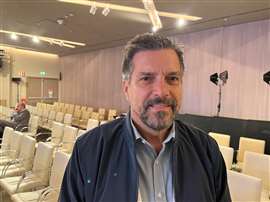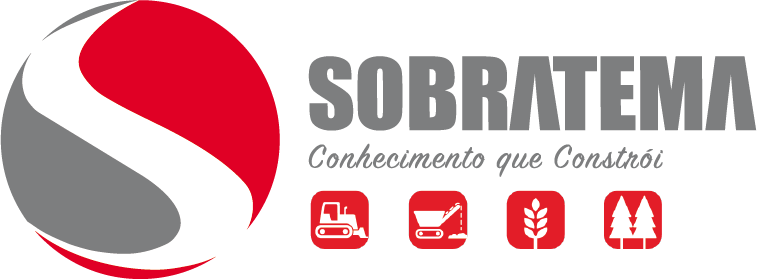Publicado em 17 de junho de 2024
International Rental News - The education challenge facing Brazil’s rental market
The education challenge facing Brazil’s rental market
Murray PollokManaging Editor, IRN & Director of Content, KHL
17 June 2024 4 min read
Brazilian rental association Analoc has valued the country’s rental market at US$12 billion, made up of 45,000 companies whose business is dominated by rental activity. And although that makes it a major market in global terms - the equal of Europe’s largest countries - it remains immature.
Paulo Esteves, the president of Analoc and a 35-year veteran of Brazil’s aerial platform and general rental market – as well as founder and current managing director of Nest Rental – told International Rental News that rental remained a highly fragmented industry and often run in a non-professional way.
 Paulo Esteves, president of Analoc and a 35-year veteran of Brazil’s equipment rental industry. (Photo: IRN)
Paulo Esteves, president of Analoc and a 35-year veteran of Brazil’s equipment rental industry. (Photo: IRN)
“We have good companies, with governance, funds and access to capital, but every day we face two different problems”, said Esteves, speaking at the ERA Convention in Lisbon last month, “A very, very competitive market, but a business environment that is ‘third world’.
“Most of the small and medium sized companies were formed by entrepreneurs. They establish a company over a period of time, and then stop developing, because they need to establish a proper system of management and follow market indicators, things like that.”
Esteves and his colleagues at Analoc are creating a federation of 11 state rental organisations as well as relevant bodies such as ALEC and Sobratema, and it now has 1,500 members under its umbrella, with plans to boost that to 5,000 within three years.
The association, based in Belo Horizonte in the state of Minas Gerais, is spreading its international wings – it is a member of the Global Rental Alliance (GRA), the federation of rental associations worldwide which is currently chaired by the ERA – but Esteves said the key to its growth and the forging of a professional industry would be to provide services and training to its domestic members.
“We understand that the problem with small entities [companies and associations] is related to funds. They don’t like to pay more [for membership] because they receive few benefits. So I started to develop a kind of e-learning system.
“We will start with three programs, for free, to attract companies. The first one is training for sales strategies. We need to work to find new opportunities, new markets, niches, different things, instead of fighting for the same customer.”
Other courses will be offered on rental pricing and on general rental management; “We are trying to make partnership with universities to establish courses or MBAs related to the rental business”, said Esteves, “That does not exist. It’s very important to develop this.”
Prices, interest rates
Esteves said education was essential for a market facing difficult conditions, with historically low rental prices, rising machine prices (linked to the value of the Brazilian currency), and an economic backdrop where high interest rates (+10%) are being used to reduce inflation, which is around 4-5%.
He said market growth this year is likely to be around 6-7%, which is less than in 2023. That doesn’t sound too bad, although becomes more modest when you factor in inflation.
He described the situation of higher machine prices and flat rental prices as “crazy” and said machine costs were prompting more Brazilian buyers to consider Chinese equipment.
“We had a show a couple weeks ago – M&T Expo - and 60% of the exhibitors were Chinese. And just in aerial platforms, we had 18, of which 13 were Chinese and five from North America and Europe.”
He has reservations about the service and product quality of some of these Chinese suppliers, but said there are also very good companies; “and they are offering special conditions, in terms of credit, long term payments, and with no interest rate. They take a lot of risk.”
Despite the challenges, is he optimistic about the country’s rental industry? “Yes, absolutely. We need to educate the market, and provide the data to make the right decisions, because the decision-making process in terms of investment is not always so rational.
“We have good professional companies – like Mills or Loxam – and they have processes to understand what’s happening in the market, but most companies don’t have a scientific approach.”
Esteves is hoping that Analoc will help change that.

Av. Francisco Matarazzo, 404 Cj. 701/703 Água Branca - CEP 05001-000 São Paulo/SP
Telefone (11) 3662-4159
© Sobratema. A reprodução do conteúdo total ou parcial é autorizada, desde que citada a fonte. Política de privacidade



